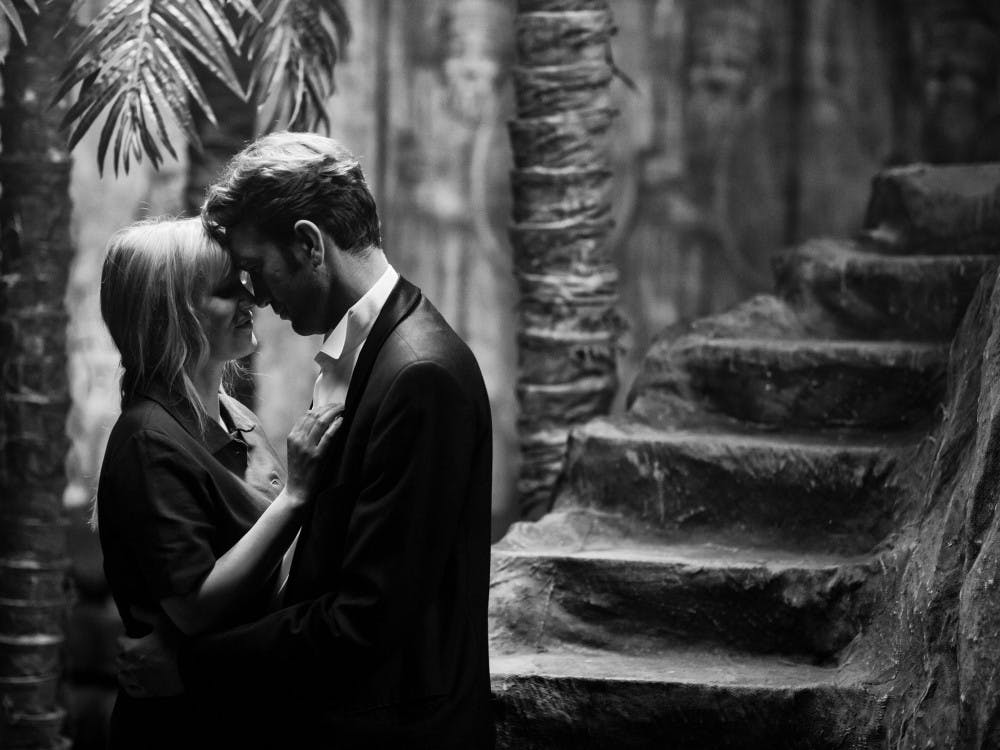Lukasz Bak/Amazon Studios
Pawel Pawlikowski is no novice to critically-acclaimed film.
A Polish director by trade, his gritty, existential realism is his Midas’ Touch. Previously, Pawlikowski directed "Ida," winner of the 2015 “Foreign Language Film” Academy Award. "Ida" takes his eye for black and white bleakness – he employs a multitude of wide shots of the Polish countryside, the camera deathly still – and blends it with his trademark theme of human mortality to tell the story of a nun with a secret. His latest masterpiece, "Cold War," focuses on the relationship between two musicians, and how the politics of their Cold War-ear nation threatens to tear them apart.
Released in December 2018, the film received critical acclaim. It was commended as “the refined work of an artist at the peak of his powers” by John Bleasdale of Cinevue and “an elliptical, episodic story of imprisonment and escape” by Peter Bradshaw of The Guardian.
In "Cold War," Pawlikowski uses similar tactics to the ones he used in "Ida" – from the mid-century setting, to the black and white cinematography to the casting of actresses Agata Kulesza and Joanna Kulig. But "Cold War" is not a slightly edited carbon copy.
With any artist, there is a theme in all every work – Tarantino uses violence or Kubrick uses intense surrealism. Likewise, Pawlikowski uses the brushes he is most dexterous with to paint a picture of two artists torn between nations.
Svilen konac pletem od sna/Tanka predja srcem se tka pa se pokida/Hej, tugo moja, tugo devojacka.
(Silk thread I'm knitting out of dreams/fine yarn weaved with heart/then it got broken/Hey, my sorrow, maiden sorrow)
Wiktor, a musician and conductor, sees a spark in rural Polish girl Zula the moment she enters the room. Her classical voice is subpar and her dancing in the median percentile, but her spirit endears her to Wiktor. Zula, thanks to Wiktor’s captivation with her, is employed by the traveling musical act he runs. She is an outlier, from her untimely bowing, to her abhorrence for show makeup to her nonconformist mannerisms. All the while, the totalitarian regime of Poland bears down ever closer, the weight threatening to suffocate the pair. When Wiktor is forced to flee Poland, he and Zula fall apart as political and emotional pressures grow even greater.
With a furrowed brow and wry expression, Wiktor’s nomadic tendencies, along with an ear for a melody, lead him through Post-War Paris to a jazz club. Zula remains with the theatre company, clinging to the hope of success.
Later in the film, Zula appears in a shadowed doorway, her return to Wiktor. The passionate scene sees the characters' previously rock-hard barriers melting like wax. In another scene, Zula sings a jazz version of her old audition song. Whereas her classical voice was average, her voice is much better suited to the freedom of jazz, and thus the freedom of Wiktor’s Paris.
As the film progresses, Wiktor’s deepening wrinkles begin to mimic the dramatic bars of his compositions and Zula’s eyeshadow becomes heavier to compensate for her cavernous eyes – an anatomical progression of time on their human bodies. And though their mortal bodies show age, the thread binding their souls is renewed each time their eyes meet.
“She,” says Wiktor to a train conductor, “is the woman of my life.”
Through infatuation and a shared cigarette they meet over and over again, even as their youth fades.
Svilen konac pletem od sna/ Tanka predja srcem se tka, pa se pokida/Hej, tugo moja
(Silk thread has been completely torn/Or my tear has fallen and torn the silk thread)
Together in Poland, Zula guides Wiktor and viewers (Pawlikowski utilizes very subjective cinematography) through the ruins of a church, like Hermes showing the way to Hades’ Underworld. After taking marriage vows and subsequently overdosing on pills, we see the couple sitting on a bench, the surroundings bleak and suggestively surreal. Hand in hand, Zula and Wiktor leave the frame, thus leaving life behind. As they embrace, Zula metamorphoses into the literal “woman of [Wiktor’s] life.” They forfeit the life of the living for a posthumous life together.
As the wind twists the Polish landscape, the thread, like the convergent trails of smoke from cigarettes, effervesces into the night.



